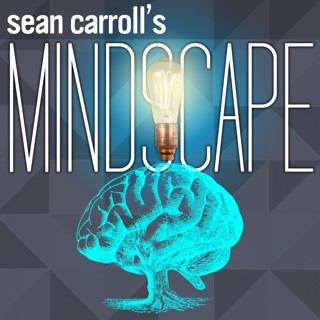
AMA | February 2021
Welcome to the February 2021 Ask Me Anything episode of Mindscape! These are funded by Patreon supporters (who are also the ones asking the questions). This month is in what has been the conventional ...
17 Feb 20212h 53min

134 | Robert Sapolsky on Why We Behave the Way We Do
A common argument against free will is that human behavior is not freely chosen, but rather determined by a number of factors. So what are those factors, anyway? There's no one better equipped to answ...
15 Feb 20211h 28min

133 | Ziya Tong on Realities We Don't See
It's a truism that what we see about the world is a small fraction of all that exists. At the simplest level of physics and biology, our senses are drastically limited; we only see a narrow spectrum o...
8 Feb 20211h 37min

Bonus | AIP Oral History Interview
Here is a special bonus punishment treat for Mindscape listeners: an interview of me, by David Zierler of the American Institute of Physics's Oral History project. This is a fantastic project that col...
4 Feb 20214h 1min

132 | Michael Levin on Growth, Form, Information, and the Self
As a semi-outsider, it's fun for me to watch as a new era dawns in biology: one that adds ideas from physics, big data, computer science, and information theory to the usual biological toolkit. One of...
1 Feb 20211h 21min

131 | Avi Loeb on Taking Aliens Seriously
The possible existence of technologically advanced extraterrestrial civilizations — not just alien microbes, but cultures as advanced (or much more) than our own — is one of the most provocative quest...
25 Jan 20211h 40min

130 | Frank Wilczek on the Present and Future of Fundamental Physics
What is the world made of? How does it behave? These questions, aimed at the most basic level of reality, are the subject of fundamental physics. What counts as fundamental is somewhat contestable, bu...
18 Jan 20211h 16min

129 | Solo: Democracy in America
The first full week of 2021 has been action-packed for those of us in the United States of America, for reasons you're probably aware of, including a riotous mob storming the US Capitol. The situation...
11 Jan 20211h 43min





















